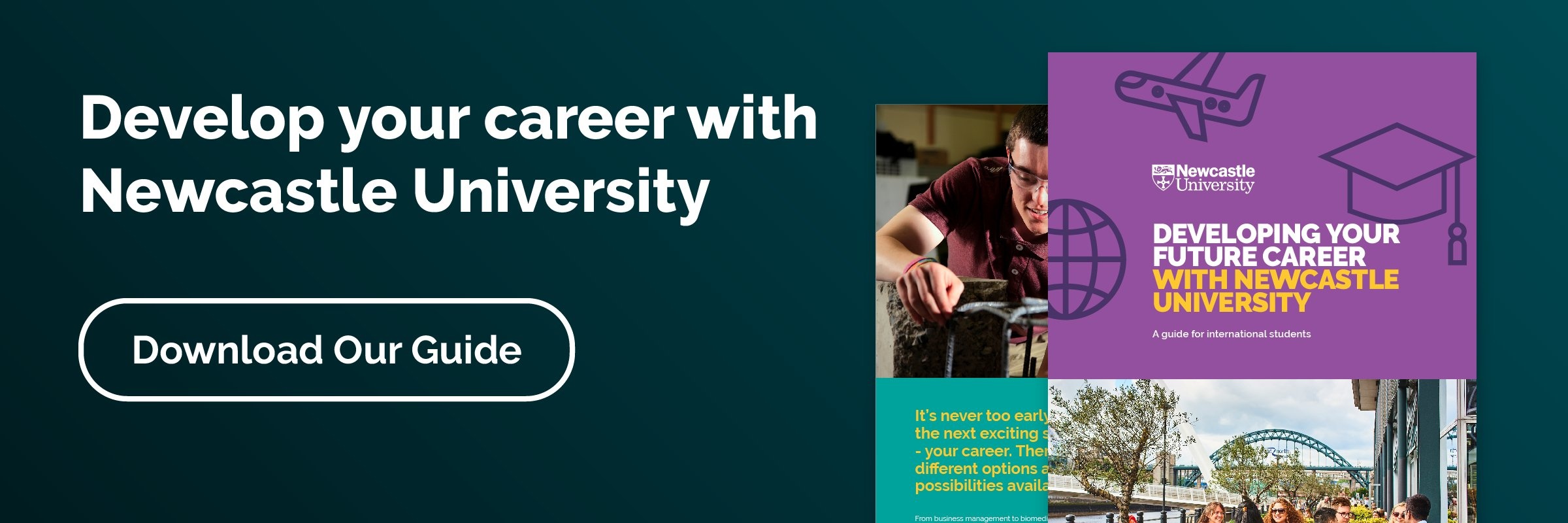There are so many options available to you once you have finished your degree. Which country would you like to stay in? Should you study for another degree? What career should I work towards?
Whether you’re in the stages of applying for university or currently studying a university course, here are some of your career options and how each of them could benefit you.

1. A postgraduate degree (MA)
A postgraduate degree - usually called a Master’s degree in the UK - allows you to focus on a certain area or topic within your chosen subject and gain expert knowledge. This option is ideal if there’s a topic you enjoy more than others and you’re interested in finding out more about it.
Studying this type of degree will build on what you’ve learned about your subject and looks impressive on your CV - helping you to stand out against other graduates.
2. A PhD (Doctor of Philosophy)
A PhD is a globally recognised postgraduate academic degree awarded to graduates who submit a piece of original research in a thesis or dissertation. Studying for a PhD degree provides you with in-depth information about a specific area of your Bachelor’s degree. You also gain skills like:
- critical thinking
- research
- analysis
- confidence
- time management
- organisation
Having these qualities broadens your career options and can be applied to a wide variety of jobs.
3. A PGCE
A PGCE qualification is a certificate confirming your ability to teach in the UK. If you find your course interesting, this option allows you to discover more about the topics and share that information with others.
However, a PGCE doesn’t mean you can teach in every country. You need to find out which countries accept a PGCE qualification.
You might also need to do extra qualifications depending on where you decide to teach. So you’ll need to do research to see which other qualifications and visas you’ll also need.
While it’s still an option, it’s not very popular with international students. Instead, they prefer to use their degree to get a job straight away.
4. A job in the UK
There is the option to stay in the UK and get a job. This would involve getting a different visa to be able to stay in the country. You’d then need to look into your options - the two main ones being direct entry and graduate schemes.
With direct entry jobs, the start date is usually expected to be immediate so it’s a good idea to only apply for these once you’ve completed your university course. Though, keep in mind that the number of vacancies can depend on which industry you’re wanting to work in. If the industries you’re looking at are popular, the process of applying for jobs can be quite competitive.
It’s also worth searching online for companies which offer graduate schemes relating to your degree.
You’ll also get a lot of advice and support from your university’s careers service. They will help you find your perfect career path and also help you with your CV and job applications.
An expert careers advisor will go through your ideas and help you plan your career. Here’s where else you can find careers advice.
5. A job abroad
Working in a different country could give you cultural experiences and provide opportunities which may not be available in the UK. You could find a job in another European country or another part of the world.
English is the language of business and communication worldwide. By getting your degree from a UK university, you’ll improve your English skills even more. Lots of countries and businesses use the English language which can help you get your dream job.
Being able to speak two languages (including English) is an impressive quality to show to employers.
Start planning your career with Newcastle University
Now you have an idea of what your career choices include, you can start looking at which options you think you would be the best for you.
Having a university qualification is great for standing out to employers, but you also need a plan for what you will do once you finish studying. We know there is a lot to think about, so we have created a useful career guide to help you.
It’s full of great information about your options, including international study statistics and how to plan your career path. Click the link below to get your free copy now.
